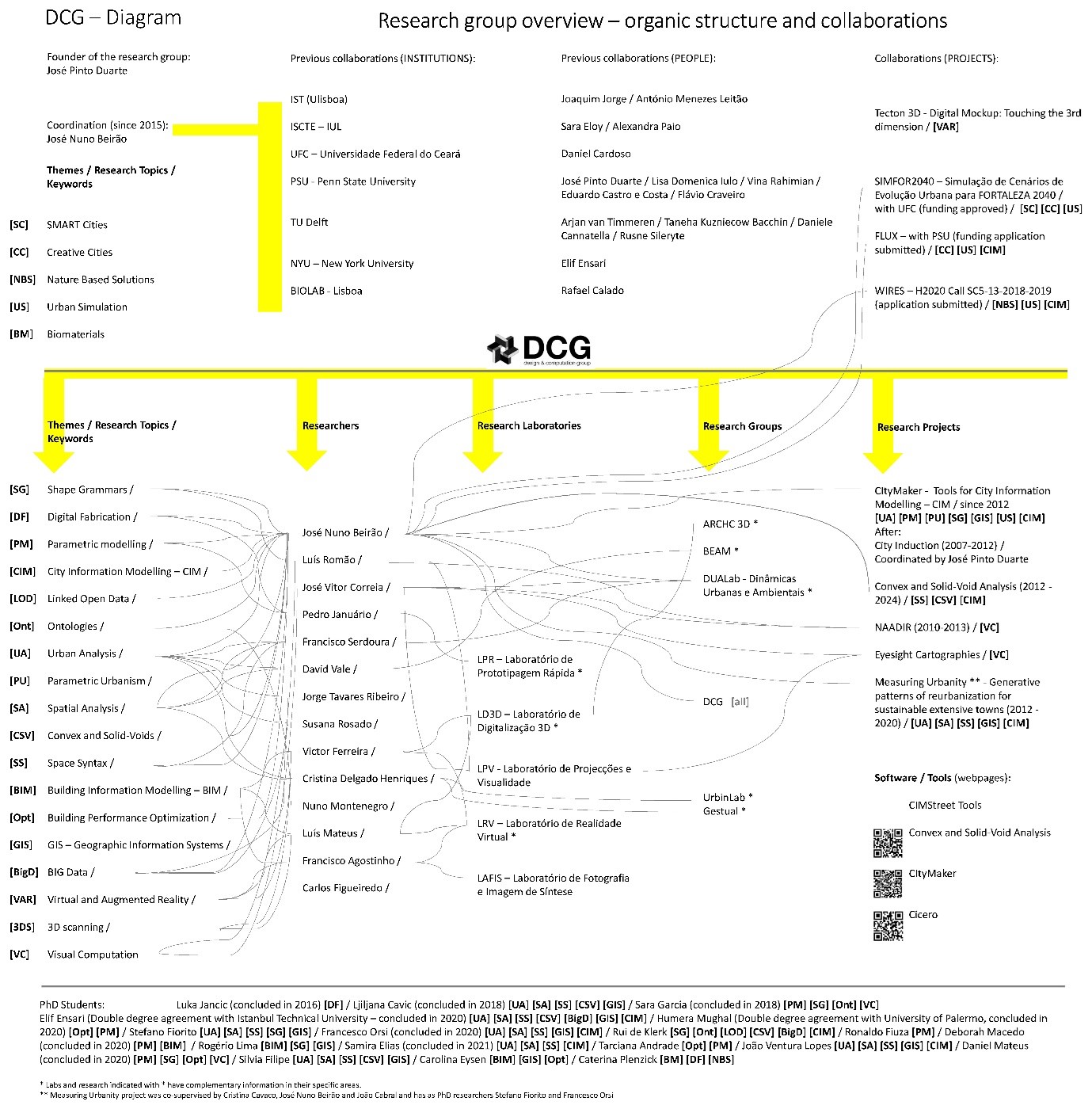History
It is an interdisciplinary group committed to create a strong contribution to the research areas at the edge between design and computation, applying computational techniques to design problems on a variety of scales: from product to urban design, from architecture to regional planning. DCG is transversal to all knowledge areas available at FAULisboa and fosters multidisciplinary and collaborative work as a philosophical principle.
The group is presently coordinated by José Nuno Beirão and involves several researchers from the Faculty.
2015 onwards
Growth
DCG reaches XX researchers and YY reseach groups
2015 onwards
2012 ?
Digital Fabrication
LPR is created, bringing digital fabrication tools into the heart of academic research
??
PhD in Design and Computation
The PhD focused on Design and Computation is launched
??
beginning of 2010's
DCG is created
From its genesis to the present
At the origin, DCG was created to support the Advanced Course on Computation Applied to Architecture, Urbanism and Design, covering subjects from Generative Design (including shape grammars), Parametric Modelling, Digital Fabrication, Linked Open Data and Ontologies, Spatial Analysis (space syntax and GIS), BIM, CIM, Programming, Data Analysis, Big Data, 3D Scanning and Virtual Reality.
At its origin the group had also the support from LPR (Rapid Prototyping Lab) and the VR Lab.
The figure below shows the organic structure of DCG synthesizing past collaborations, contributors, and its subdivision into subgroups that turned to highly specialized autonomous labs or research groups. After this subdivision, DCG still keeps collaborations with them, but concentrates its focus on a smaller number of research subjects.
The topics 3D scanning, virtual reality and digital fabrication got their autonomous groups and teams, but DCG has intensified its focus on City Information Modelling and related subjects, such as spatial analysis and original methods such as convex and solid void analysis: http://solidvoids.fa.ulisboa.pt/

More recently, the group has extended their research to bio-inspired material design, a line of research that profits from a direct relation to the development of simulation behavioural models for buildings which allow us to delve into the sustainability assessment and design of buildings.
As practicing philosophy, DCG accepts researchers interested in any of the Research Lines described in this website (please, check the respective page).
